Russia
Transgender and gender diverse rights in Russia deteriorating rapidly
Lawmakers on Tuesday expected to give final approval to gender transition ban bill
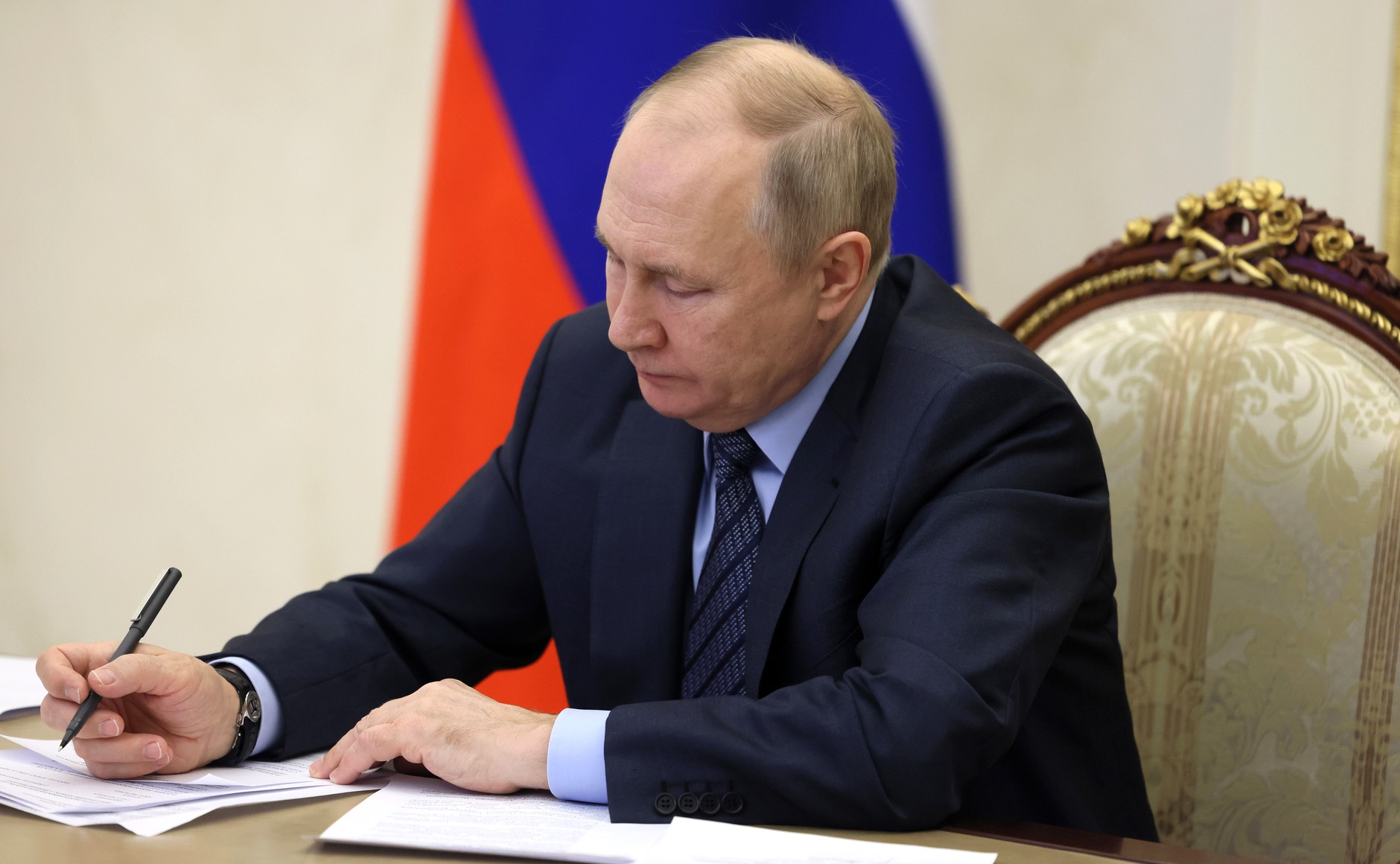
In a scene eerily reminiscent of a 1960’s cold war era novel, the young woman sat nervously at the outside table of the café not far from the museum district and main railroad station in St. Petersburg, chain smoking French Gitanes and toying with the food on her plate in front of her. She kept nervously glancing around as if she expected to suddenly be swept up in a secret police raid.
The primary cause of her anxiety and discomfiture she explained to the journalist sitting across the table from her, was that as a transgender woman, she felt threatened and afraid. Unable to continue to live in her native region in the Sverdlovsk Oblast, [region] in the Ural mountains she had moved first to the Russian capital of Moscow. Then as tensions rose over the treatment of LGBTQ Russians she fled to St. Petersburg.
“There is no safety anymore, soon they will openly hunt us like swine, we no right to exist they say,” she told Russian freelance journalist Sergei Dimitrov.
The young woman who only identified herself to Dimitrov by the name Elena said that since the latest passage of laws including expansion of the Russia’s “gay propaganda” law to include adults last December, coupled with the crackdown by the Russian Federal Service for Supervision of Communications, Information Technology and Mass Media, abbreviated as Roskomnadzor, on any websites and on popular phone apps that cater to LGBTQ people, she has now begun efforts in earnest to leave the country.
Last week the lower house of the Russian Parliament, colloquially referred to as the State Duma, passed on its final reading a bill that would outlaw gender transitioning procedures in Russia. The measure now heads to the Federation Council, or upper House where it is expected to pass in the scheduled vote on Tuesday and then transmitted to Russian President Vladimir Putin for his approval and signature which is expected.
State Duma [Parliament] Deputy Speaker Pytor Tolstoy, a co-sponsor of the legislation, pointed out that banning the “practice of transgenderism” was in the interest of national security.
The diagnosis of “transsexualism,” he added, refers to gender identity disorders and is the basis for recognizing a citizen as unfit for military service. In addition, “we must not forget that by changing the sex of one of the partners, a homosexual couple gets the right to adopt a child. Unfortunately, there are already such cases in Russia,” he said.
The proposed law would bar Russians from changing their gender on official government identity documents including internal and external passports, driver’s licenses, and birth certificates, although gender marker changes had been legal for 26 years since 1997.
Medical healthcare providers would be banned from “performing medical interventions designed to change the sex of a person,” including surgery and prescribing hormone therapy.
In a floor speech prior to the vote last month after the measure’s first reading, Tolstoy blamed the West for what he deemed a profitable medical industry:
“The Western transgender industry is trying in this way to seep into our country, to break through a window for its multi-billion dollar business,” Tolstoy said. Then he claimed there is already a developed network of clinics in Russia, “it includes trans-friendly doctors and psychologists, and all this operates with the active support of LGBT organizations. However, in the past six months they have changed their names to more, perhaps harmless ones,” he said inferring that the recent expansion of the country’s law banning LGBTQ propaganda was somehow responsible for those changes.
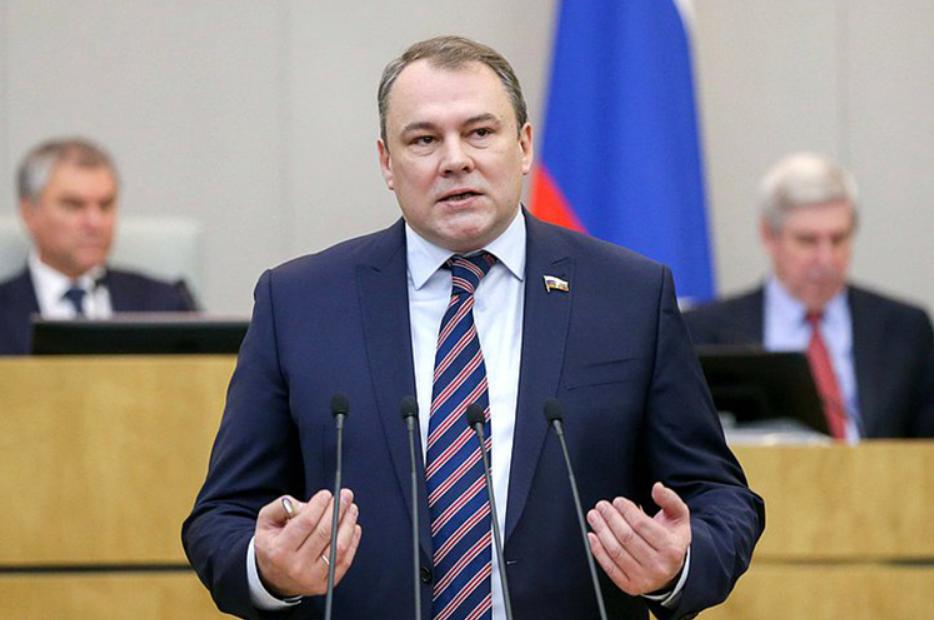
According to Tolstoy, gender reassignment surgery is “a very profitable area of medical services. And it’s understandable why a number of doctors defend this area so fiercely, hiding behind academic knowledge, including those obtained abroad while studying in the United States and other countries,” he said, “running into” Western medical education.
Provisions to the bill in its second reading, approved on Thursday, also ban trans people from adopting or fostering children, and force them to annul their marriages if one of the couple subsequently changes gender.
LGBTQ and human rights organization ILGA-Europe issued a statement condemning the actions of the Russian Duma and offered support and solidarity with the Russian trans and queer communities.
“We firmly assert that such legislation flagrantly violates fundamental human rights standards and principles.
ILGA-Europe firmly believe in the inherent dignity and equal rights of all individuals, regardless of their gender identity or expression. International human rights standards, including the Universal Declaration of Human Rights, emphasize that everyone has the right to self-determination, privacy, and the highest attainable standard of physical and mental health. Denying trans and gender diverse individuals access to trans-specific healthcare and legal gender recognition blatantly disregards the international human rights framework,” ILGA-Europe wrote.
Sympathetic physicians and trans rights advocates have warned that the ban is poised to create a black market for hormone substitutes, some of which likely will be dangerous and lead to an increase in attempted suicides among trans youth unable to access medical care.
ILGA-Europe’s statement also warned: “Furthermore, the bill invalidates all certificates of legal gender recognition for individuals who have undergone transition-related surgery but not yet changed the gender marker in their passport. This is a violation of their right to privacy, places trans people in legal limbo, and creates unnecessary burdens on trans people, forcing them to disclose their private and medical history and exposing them to discrimination, harassment and violence.”
According to Dimitrov, that particular provision of the legislation is specifically applicable to Elena, who while having completed transition-related surgery has been unable to get the gender marker changed on her documents, which with the current war in Ukraine has further complicated her life.
She told Dimitrov that demands for her to present herself for required military service, under her former name and gender, was yet another reason she had fled. Now she says, she is trapped and unable to legally leave, entertaining the option of illegally entering the EU and asking for asylum, most likely to neighboring Latvia, or Estonia.
Independent news outlet Mediazona reported in February 2023 that the number of passports issued due to “gender change” has more than doubled in 2022 compared with two years earlier — from 428 in 2020 to 936 last year, according to Russia’s Interior Ministry.
In justifying the provision, lawmakers cited concerns that men are using the relatively simple procedure of changing gender in official documents to dodge the military draft.
Another point was raised by a lawmaker who asked what to do with 3,000-plus trans people who have already managed to change their gender and documents. Tolstoy responded noted that the law does not have retroactive effect.
State Duma Speaker Vyacheslav Volodin called gender transitioning “pure satanism.”
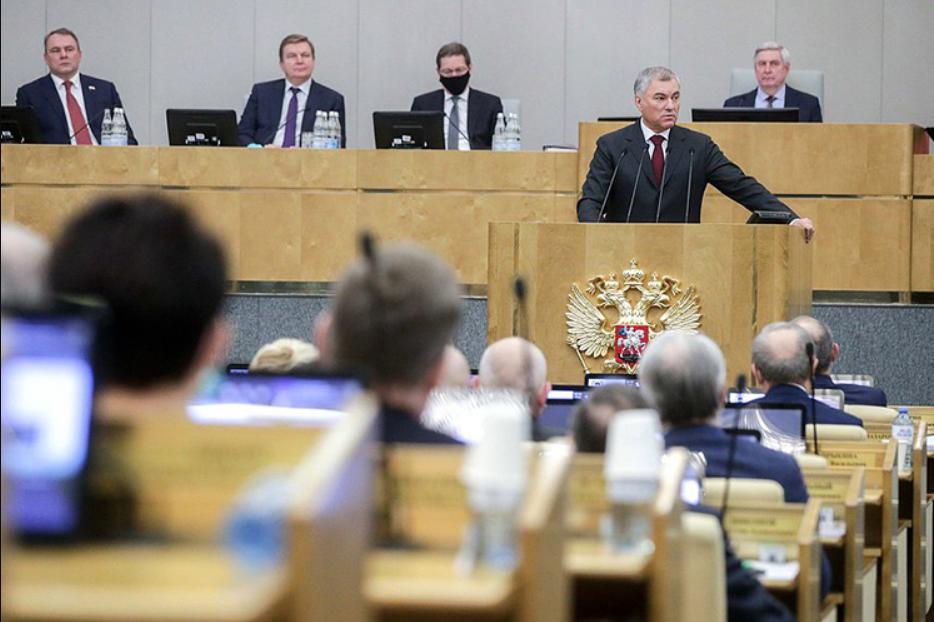
Akram Kubanychbekov, a senior advocacy officer for ILGA-Europe, this past week sent out a “dear colleagues” request for assistance detailing specific needs and actions that will be crucial to assisting trans and gender diverse Russians.
Kubanychbekov wrote:
“Discrimination, violence and the enactment of oppressive laws have made it increasingly unsafe for trans people to live their lives authentically and without fear. In light of these circumstances, we have reached out local trans organizations to ask them of support trans community need at the moment.”
“To address the urgent needs of trans people who wish to leave Russia, there is a need in facilitating support for broadening the criteria for humanitarian visas. By expanding the eligibility criteria, we can ensure that those facing persecution and threats to their safety have a viable pathway to seek refuge in other countries. It is crucial to work together to advocate for this change with governments at the national level to extend our support to trans people seeking a safer environment in safer countries.”
“In addition to humanitarian visas, trans organizations [inside Russia] asked to assist in securing multi-entry, long-term (preferably Schengen) visas for activists, who will continue their important work within Russia but may need to swiftly leave in case of escalating danger. By facilitating the necessary visa support, activists are enabled to carry out their vital work with the knowledge that they have an emergency exit if required.”
“We would like to encourage you to stand in solidarity with the local trans organizations in Russia and support their requests.”
Political fallout
Yulia Alyoshina, the country’s first trans politician, had made plans this past year to run for governor of Russia’s Altay region, an area bordering the former Soviet republic and now independent nation of Kazakhstan.
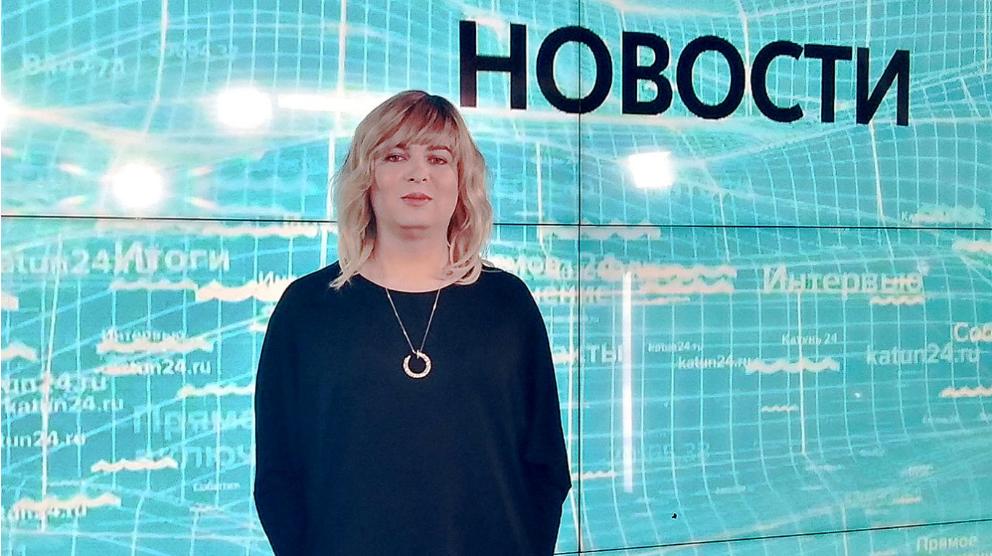
Alyoshina, who had been the head of the regional Civic Initiative party, resigned her post after Putin signed the expanded anti-LGBTQ law last December. With gubernatorial elections set for this September in the Altay region, party officials had urged her to consider running.
Alyoshina says she didn’t expect anyone in the Civic Initiative party to suggest that she run in the gubernatorial elections. But she figured “well, why not” and agreed. “I’m sure that the fact that I was born in a different body is not as important to voters as my honesty, integrity, and sincere desire to make my native land better,” she told Russian media outlet Novaya Gazeta Europe.
On the topic of Russian society’s relationship to trans people, Alyoshina told Novaya Gazeta Europe the current political climate is quite bad. She described losing supporters after the Duma passed and Putin signed the anti-LGBTQ laws last December. She thinks people have been influenced by the authorities’ rhetoric on “LGBT propaganda.”
In another interview with Russian language media outlet, Meduza, which the Putin government banned in January 2023, Alyoshina reflected on the effects of the bill. She told Meduza that her medical transition took about a year and a half. There were no private clinics in her region where should could go for gender care services, so she was seen at a state psychiatric hospital. It took another year and a half after she was first seen to get a certificate for changing gender markers [on legal documents.]
In a phone interview with the Moscow Times just prior to the Duma’s impending vote, Alyoshina confirmed the post she had made on her Telegram channel that she had abandoned her effort to campaign as a gubernatorial candidate.
“I was told by municipal deputies and village heads that the [gender reassignment ban] bill was being considered and that they couldn’t give me their signatures,” Alyoshina told The Moscow Times.
“They told me: ’How can we publicly support a transgender person if the State Duma prohibits transgender people in Russia?” she said.
“By putting our signatures in your support, we will go against the country’s policy, and we have families and children, we don’t want to fall under repression,” Alyoshina quoted the deputies as telling her.
Alyoshina said she was weighing “various options” for her future, but said she would wait for the passing of the gender reassignment law.
“I’m not ready to dive into [my future plans] until the legislation is passed,” she said.
Russia
Russia’s anti-LGBTQ crackdown takes absurd turn
Authorities targeted one of the country’s largest bookstore chains last month

While MAGA continues to attack LGBTQ rights in the U.S. — including erasing queer history and removing children’s books with LGBTQ characters from libraries and pushing an ever‑broader censorship agenda — and as the UK faces MAGA‑inspired campaigns demanding the removal of LGBT literature from public libraries, Russia’s assault on LGBTQ‑related media has taken an extreme and frankly absurd turn. It is a cautionary tale for Western countries of just how far censorship can go once it becomes normalized. From books to anime, TV shows, and even academia, queer existence is being systematically erased.
In January, one of Russia’s largest private bookstore chains, Chitai‑Gorod-Bukvoed, faced the risk of being shut down over alleged “LGBT propaganda” under a law that prohibits any positive mention of LGBTQ content and equates LGBTQ material with pornography and pedophilia.
Among the books targeted were “Beartown,” “Us Against You,”and “The Winners”by Fredrik Backman, “The Left Hand of Darkness” by Ursula K. Le Guin, and “The Heart’s Invisible Furies” by John Boyne.
According to Chitai‑Gorod-Bukvoed CEO Alexander Brychkin, once it became known in mid‑December that law enforcement agencies had launched inspections, the Chitai‑Gorod–Bukvoed network immediately removed these titles from sale nationwide. In a comment to Kommersant, Brychkin stressed that the chain “operates strictly within the legal framework,” noting that the books were not listed in any official register of banned materials at the time the inspections began and had been on sale for several years.
Previously, two of the biggest online film distribution companies were charged as well under the “LGBT Propaganda law.”
Private businesses had no more right to speak up than writers or artists who are persecuted for their work. This is a nightmare scenario for many Americans who believe the free market itself can protect freedom of expression. This is the reality of modern‑day Russia.
A censored version of the anime “Steins;Gate” has also been released on Russia’s most prominent streaming platform, “Kinopoisk,” in which the storyline of one of the main characters was altered due to the ban on so‑called “LGBT propaganda,” as reported by opposition outlets Verstka and Dozhd, as well as fans on Reddit.
In the original series, the character Ruka Urushibara is a young person with an androgynous appearance who struggles to accept themself in a male body — an obvious indication that Ruka is a transgender girl. Ruka wears women’s clothing and dreams of becoming a girl. In episode eight, Ruka is given the chance to intervene in the past by sending a message to their mother in order to be born female.
In the Kinopoisk version, released in late 2025, Ruka is instead portrayed as a girl living with HIV — something entirely absent from the original anime and invented in translation. The storyline and dialogue were rewritten accordingly, completely distorting the original meaning: in this version, Ruka attempts to change the past in order to be born “healthy,” without HIV, rather than to be born a girl. This is not only absurd, but deeply offensive to the LGBTQ community, which has long been stigmatized in relation to HIV.
A similar distortion appears in “Amediateka”’s translation — or, better to say, rewriting — of the new AMC series “Interview with the Vampire.” Translators rewrote dialogue in ways that fundamentally misrepresented the plot, downplaying the openly queer nature of the characters to the point that romantic partners were translated merely as “friends” or “pals,” rendering entire scenes meaningless. At the same time, even brief critical references to Russian or Soviet politics were removed.
As for queer romance, such as the popular Canadian TV show “Heated Rivalry,”it has no official Russian translation at all and circulates only through fan translations. The show remains popular among millennials and Gen Z, and Russian social media platforms like X (Twitter) and Instagram are full of positive reviews. Yet, in theory, promoting such a show could put someone at risk under the law. People still watch it, still love it, still build fan communities, but it all exists quietly, pushed under the carpet.
The prohibition is not total, but it is a grotesque situation when even such a nice and harmless show is stigmatized.
Books suffer even more. Some classics fall under bans, and books are physically destroyed. In other cases, the outcome is worse: texts are rewritten and censored, as with “Steins;Gate.” This affects not only fiction but also nonfiction. For example, in “Deep Color” by Keith Recker, an American researcher of visual arts, all mentions of queer, feminism or BDSM culture were erased in the Russian edition. Even historically necessary references were removed, including mentions of the pink triangle used by the Nazis.
In the Russian edition of Skye Cleary’s “The Thirst for Authenticity: How Simone de Beauvoir’s Ideas Help You Become Yourself,” dozens of paragraphs were blacked out. Passages discussing the fluidity of gender and a person’s right to define themselves outside the rigid male–female binary were removed. Sections on contraception and abortion, critiques of biological reductionism and social pressure on women, details of Simone de Beauvoir’s intimate life and her relationships with women, as well as reflections on non‑monogamous relationships, were all excised. Even footnotes referencing quotes about gender identity were hidden.
Those two books are one of the many examples of the fate of Russian-translated nonfiction. Actually, even books about animal reproduction were demanded to be censored because of the “LGBT propaganda law”. Apparently, the authorities couldn’t accept a neutral scientific description of same-sex behavior and reproductive diversity in animals.
The authorities know what they are doing. Most people are less likely to read dense nonfiction or search actual studies about animal sexual behavior than to watch a popular TV show about queer hockey players, which makes visual media easier to censor quietly and effectively. So they really could show LGBTQ as something negative and absolutely unnatural for most of the Russian population.
And this is the core of the problem. This is not just censorship of content — it is the rewriting of history, even the narrative around biology. It is the deliberate marginalization of queer existence, the systematic erasure of queer people’s ability to see themselves reflected in culture, literature, and art.
The U.S. still retains independence in academia, publishing, and private business when it comes to queer voices. Russia does not. History shows where this path leads: Nazi Germany burned books; the Taliban destroyed cultural and historical materials. This is always one of the first steps toward genocide — not immediate, perhaps, but inevitable once dehumanization becomes official policy. It never stops with just one group. In Russia, immigrants, people from the North Caucasus and Central Asia, Ukrainians, and even disabled citizens face daily dehumanization — it’s all part of the same system.
And now, alarmingly, the U.S. seems to be following in Russia’s footsteps — the same path that enabled war in Ukraine and the thriving of authoritarianism.
Russia
Russia designates ILGA World an ‘undesirable’ group
Justice Ministry announced designation on Jan. 21
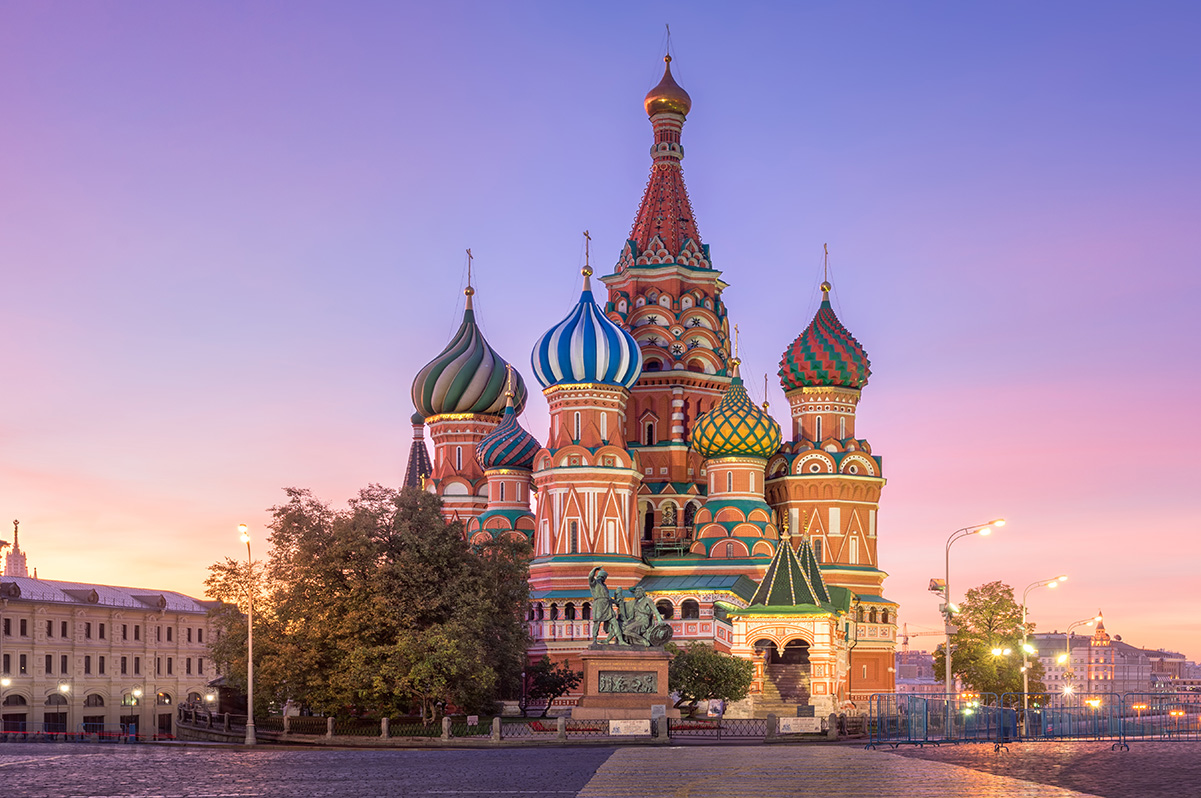
Russia has designated a global LGBTQ and intersex rights group as an “undesirable” organization.
ILGA World in a press release notes the country’s Justice Ministry announced the designation on its website on Jan. 21.
The ministry’s website on Tuesday appeared to be down when the Washington Blade tried to access it. ILGA World in its press release said the designation — “which also reportedly includes eight other organizations from the United States and across Europe” — “has been confirmed by independent sources.”
“ILGA World received no direct communication of the designation, whose official reasons are not known,” said ILGA World.
The Kremlin over the last decade has faced global criticism over its crackdown on LGBTQ rights.
ILGA World notes Russians found guilty of engaging with “undesirable” groups could face up to six years in prison. The Russian Supreme Court in 2023 ruled the “international LGBT movement” is an extremist organization and banned it.
“Designating human rights groups ‘undesirable’ is outlandish and cynical, yet here we are,” said ILGA World Executive Director Julia Ehrt. “But no matter how much governments will try to legislate LGBTI people out of existence, movements will stay strong and committed, and solidarity remains alive across borders. And together, we will continue building a more just world for everyone.”
Russia
Gay Russian asylum seekers remain in ICE custody
Andrei Ushakov and Aleksandr Skitsan sought refuge in US in November 2024.
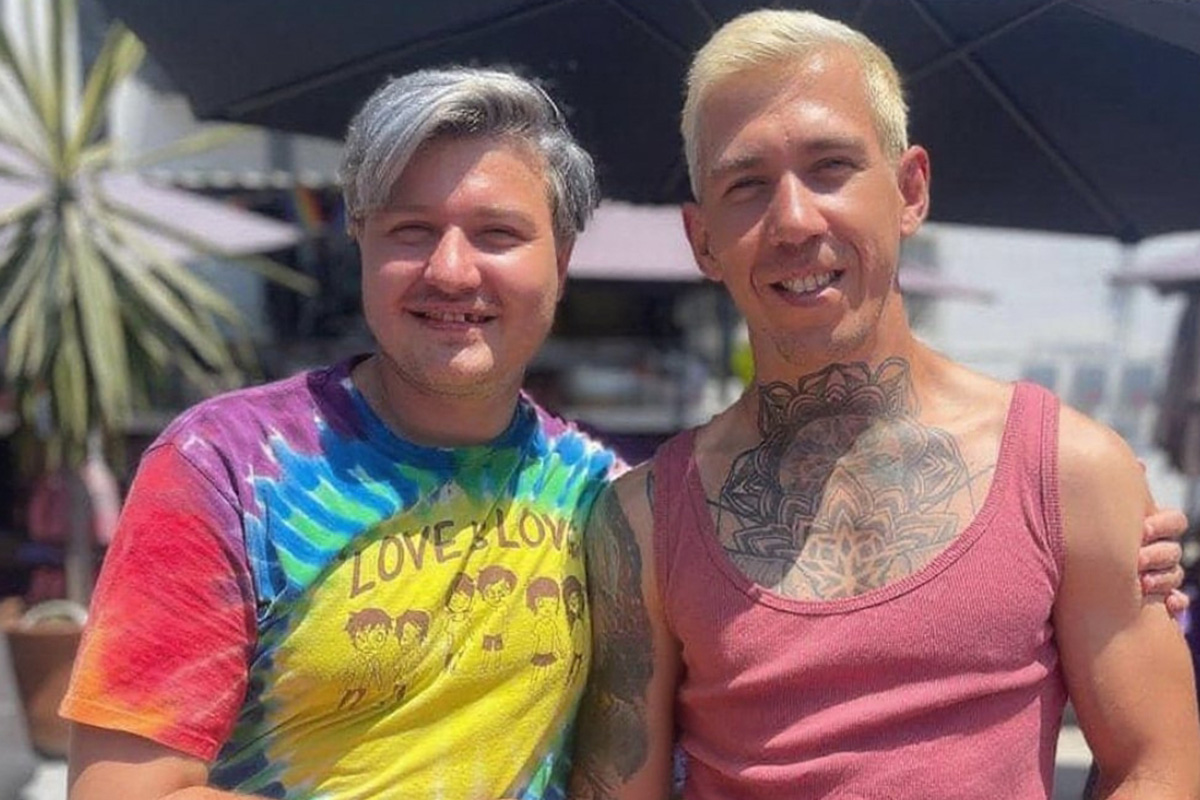
A gay married couple from Russia who has asked for asylum in the U.S. has been in U.S. Immigration and Customs Enforcement custody for nearly a year.
América Diversa, a group that advocates on behalf of LGBTQ immigrants, told the Washington Blade that Andrei Ushakov and Aleksandr Skitsan fled Russia on March 14, 2024, “after the government began labelling LGBTQIA+ organizations as ‘extremist.’” Skitsan “faced direct threats at his workplace, forcing them to flee for their safety.”
The State Department’s 2023 human rights report specifically notes a Russian authorities “used laws prohibiting the promotion of ‘non-traditional sexual relations’ to justify the arbitrary arrest of LGBTQI+ persons.” The 2023 report also cites reports that “state actors committed violence against LGBTQI+ individuals based on their sexual orientation or gender identity, particularly in Chechnya” and “government agents attacked, harassed, and threatened LGBTQI+ activists.”
Advocacy groups in August sharply criticized the State Department after it “erased” LGBTQ and intersex people from its 2024 human rights report. Immigration Equality and other organizations say this omission could jeopardize the cases of LGBTQ who are seeking asylum in the U.S.
Couple separated, not receiving proper medical care in ICE custody
América Diversa says Ushakov and Skitsan arrived in Mexico on March 15, 2024.
The men used the CBP (U.S. Customs and Border Protection) One app the Biden-Harris administration created that allowed them and other asylum seekers to schedule an appointment at a port of entry. Their appointment was on Nov. 27, 2024, and America Diversa said they asked for asylum on that day once they entered the U.S.
The Trump-Vance administration discontinued the CBP One app on Jan. 20, the day it took office.
“Upon entering U.S. custody, they (Ushakov and Skitsan) were separated without explanation,” said América Diversa.
Ushakov and Skitsan were initially detained at the Imperial Regional Detention Facility in Calexico, Calif., which is in the state’s Imperial Valley.
“Andrei was placed in an overcrowded unit with more than 60 detainees, where poor sanitation, excessive air conditioning, and the lack of adequate medical care have put his health at risk,” said América Diversa.
The group says the couple are now at the San Luis Regional Detention Center in San Luis, Ariz.
“They are now being denied all communication with each other, despite being legally married and sharing the same asylum case,” said América Diversa.
The group notes Ushakov has a “chronic medical condition that requires continuous medication and quarterly monitoring.”
“Despite repeated requests, he faces long delays in treatment and limited access to medical services,” said América Diversa.
América Diversa also noted Skitsan suffers from a “chronic ear infection, which causes ringing and temporary hearing loss, as well as untreated stomach issues.” América Diversa said Skitsan had been scheduled to see a doctor in December, but his “recent transfer to Arizona has jeopardized that case.”
“Their transfer to the San Luis Regional Detention Center has further worsened their situation,” said América Diversa. “At this new facility, they have been prohibited from communicating with each other, an act that violates not only basic humanitarian principles but also their rights as a legally married couple under both U.S. and international law.”
América Diversa Managing Director Yonatan Matheus on Oct. 22 told the Blade he had just spoken with Ushakov.
“He couldn’t talk with his husband, he was only able to talk with me for less than five minutes,” said Matheus. “The calls are recorded and monitored. He is very afraid to speak.”
The couple’s case are among those that have garnered attention since the Trump-Vance administration took office.
The White House earlier this year “forcibly disappeared” Andry Hernández Romero, a gay Venezuelan makeup artist who asked for asylum in the U.S., to El Salvador. He returned to his homeland in July after he spent more than 100 days in El Salvador’s Terrorism Confinement Center, a maximum-security prison known by the Spanish acronym CECOT.
ICE agents in August arrested Alice Correia Barbosa, a transgender Brazilian woman, while she was driving her car in Silver Spring, Md. A senior Department of Homeland Security official who misgendered Correia told the Blade that she “overstayed his visa by almost six years” and DHS plans to deport her.
Brazil has the highest number of reported murders of trans people in the world.
ICE did not respond to the Blade’s request for comment about Ushakov and Skitsan’s case.



















